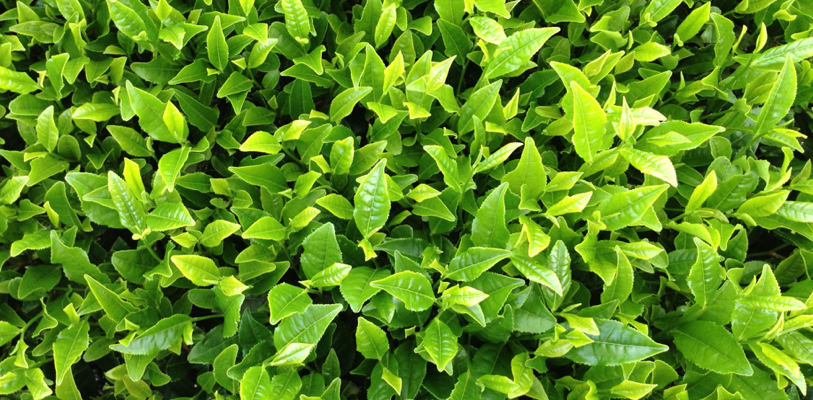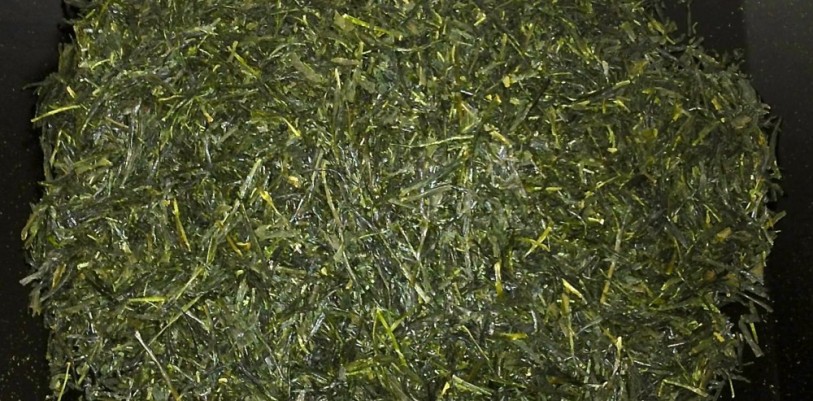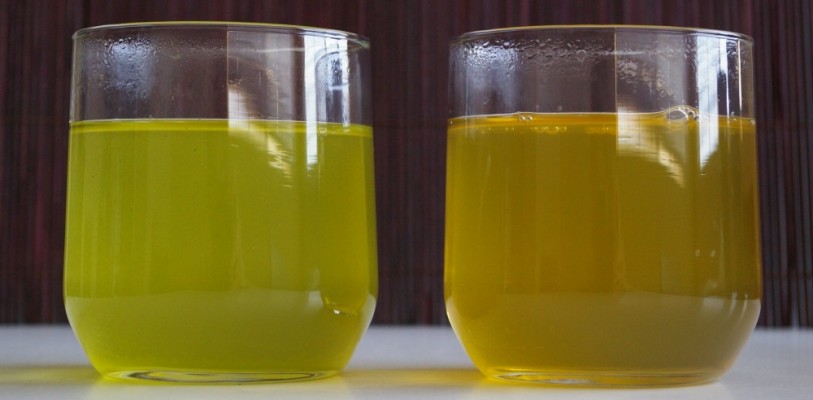
If you’re like me, you’re excited about the health benefits of green tea and drink multiple cups a day. But you might be consuming dangerous amounts of lead and toxic chemicals.
The good news is that most of the lead stays with the leaf when brewed. Consumer Labs tested some popular green teas and found that none of them exceeded the USDA limit of 2 mcg of lead per gram when brewed. However, there were high amounts of lead remaining in the tea leaves.
| Brand of Green Tea | Amount of Lead in Tea Leaves (mcg) |
| Celestial Seasonings K-Cup | 5.2 |
| Bigelow Green Tea Certified 100% Organic | 2.5 |
| Lipton Pure Green Tea | 2.4 |
| Bigelow Green Tea Classic | 2.1 |
| Bigelow Green Tea Naturally Decaffeinated | – |
| Salada Green Tea Naturally Decaffeinated | – |
| Teavana Gyokuro Loose Leaf | – |
Consumer Labs study of green tea and lead content
If you think you are safe from lead because you buy organic green tea, think again. Tea plants absorb lead from the environment at a higher rate than other plants. Lead contaminates the soil and air from industrial pollution and car exhaust.
Researchers found that 32% of the tea leaves from China exceeded the limit for lead. In comparison, 0% of the tea leaves from Japan exceeded the limit.
This might sound frightening, but the amount of lead is not dangerous if it is brewed. Even if the leaves contain lead, the brewed tea will not have significant amounts of lead. This is because 90% of the lead stays in the tea leaf.
Using a paper filter such as a tea bag or K-cup can also reduce the amount of lead in your drink. And the process of decaffeination removes lead.
Matcha is another story. Matcha is made from the whole leaf and is ground into a fine powder.
Because Matcha contains the whole tea leaf, you get more of the benefits of green tea in a single serving. Matcha has an average of 4 – 7 times the EGCG of brewed green tea and it has more caffeine.
Don’t believe the hype that Matcha has 137 times the EGCG of brewed green tea.
But you not only get more of the benefits. You also consume 100% of the lead contamination! If the tea leaves were high in lead, then the Matcha becomes highly contaminated.
According to Consumer Labs, one serving of Matcha could contain 2.5 to 7.5 mcg of lead, exceeding the USDA limit.
I don’t recommend drinking Matcha or eating tea leaves unless you are confident about their origin. Different parts of the world have higher concentrations of lead than others.
And, when it comes to green tea and lead, even buying organic is not the answer.
If in doubt, limit yourself to just one cup of Matcha a day and drink brewed tea for the rest of the day.
ConsumerLab.com. (2014). Product review of green tea supplements, drinks, and brewable teas. Retrieved from https://www.consumerlab.com/reviews/Green_Tea_Review_Supplements_and_Bottled/Green_Tea/
Han, W., Zhao, F., Shi, Y., Ma, L., & Ruan, J. (2006). Scale and causes of lead contamination in Chinese tea. Environmental Pollution, 139(1), 125-132.


